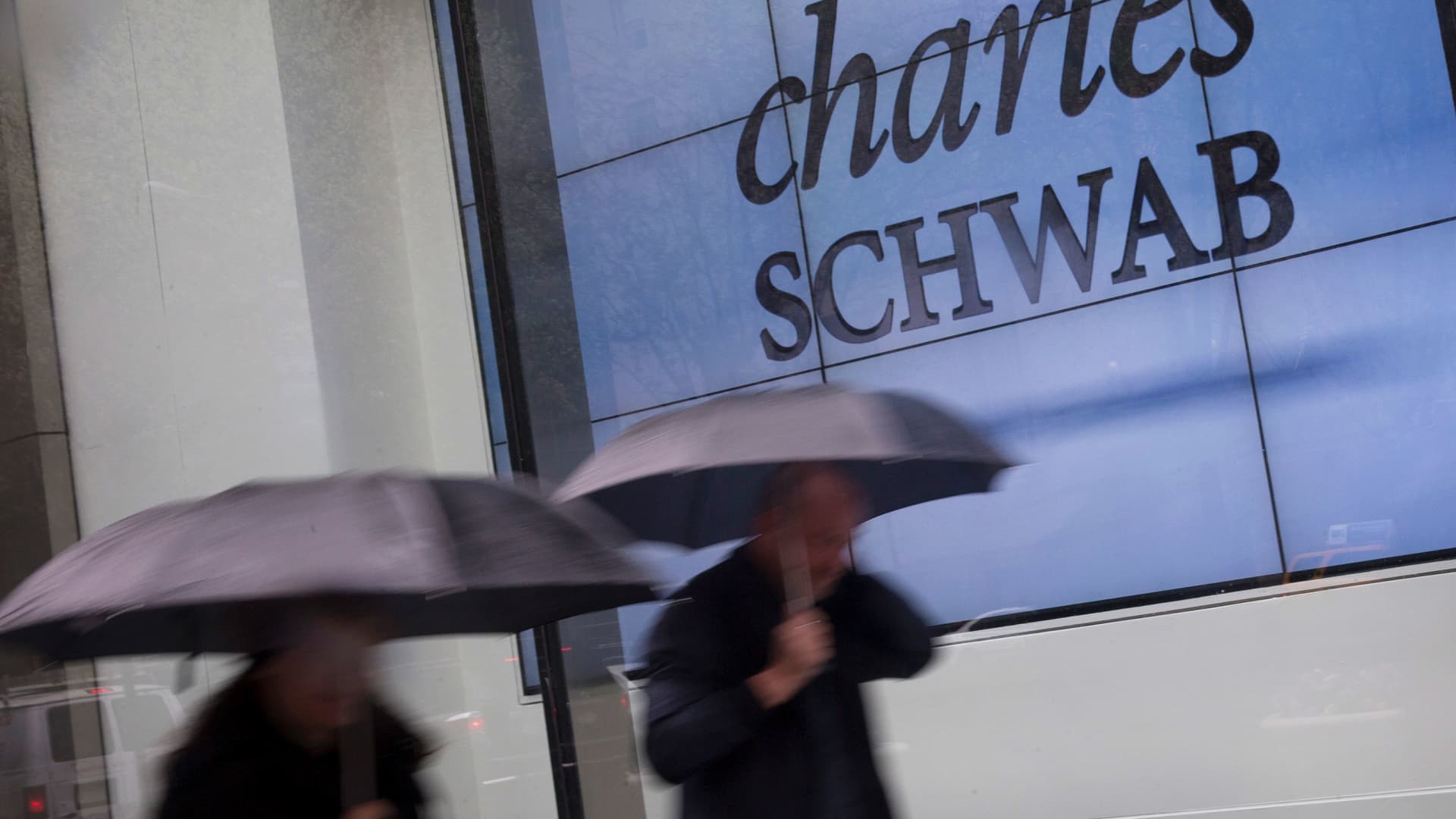
The recent pullback in Charles Schwab shares presents a compelling entry point for investors, according to Citi. Analyst Christopher Allen upgraded Schwab shares to buy from neutral, saying that Schwab shares have limited risk of deposit flight risk. “We see current valuation levels as a compelling entry point given SCHW’s long-term track record of delivering healthy asset/revenue growth and opportunities for margin expansion in 2024/2025 given current investment levels,” Allen wrote in a Monday note. Charles Schwab shares plunged 23% during the last two trading days. The drop started with the massive sell-off of Silicon Valley Bank’s shares , and continued following SVB’s failure. Charles Schwab’s stock was down an additional 7.3% during premarket trading on Monday. Nevertheless, Citi lowered its price target to $75 from $83 due to a “modest acceleration” in its cash sorting assumptions for the financial services company. The new price target still implies a 28% upside from the stock’s closing price on Friday. “We expect the magnitude of ‘client cash sorting’ to be higher than we have seen in prior cycles. SCHW has pointed to a 20% decline in sweep balances over the course of the cycle – our estimates are more conservative and build in a 33% decline. But we would note that a healthy [percentage] of customers have likely already taken action on this front,” said Allen. Citi thinks that Charles Schwab has sufficient liquidity on hand as client assets shift toward higher-yielding instruments, preventing it from avoiding the same fate as SVB. To be sure, not everyone is as optimistic on Schwab shares. Bank of America analyst Craig Siegenthaler reiterated his underperform rating on the stock. “Despite the significant drop in the SCHW stock over the last month, we expect it to continue to underperform in 1H23 relative to its broker peers that don’t have capital intensive balance sheets with short-term liabilities matched with long-term assets.,” he said. “However, we don’t expect the same ‘run on the bank’ type issues to emerge as SVB/SI, and we also expect the Federal Reserve to react favorably to stem future problems,” Siegenthaler wrote in a client note on Monday. The financial services company’s shares have nearly almost 30% in 2023 and during the last 12 months. —CNBC’s Michael Bloom contributed to this report.
